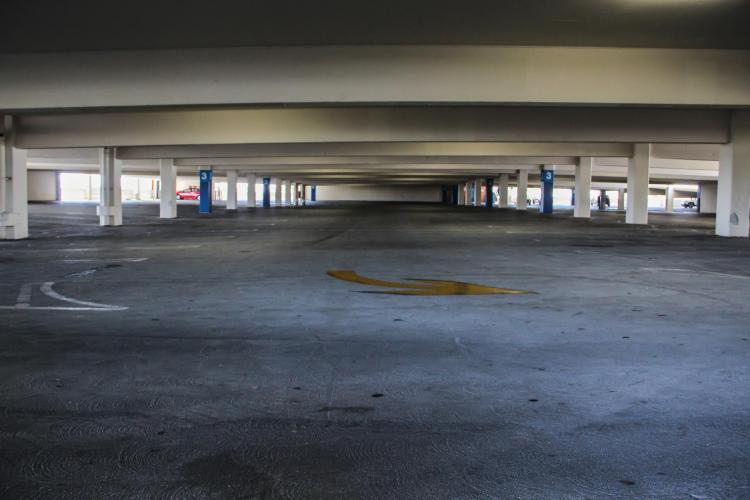Advocacy Continues Even as Legislature Enjoys Recess
 There’s a noticeable change in Sacramento when the
Legislature is in recess. Traffic is lighter, parking is easier
and lines at popular lunch spots are shorter. While it’s been
more than a month since the end of session and two weeks since
the Governor’s bill-signing deadline, CSAC remains hard at work
advocating on its key priorities of homelessness, In- Home
Supportive Services and wildfires.
There’s a noticeable change in Sacramento when the
Legislature is in recess. Traffic is lighter, parking is easier
and lines at popular lunch spots are shorter. While it’s been
more than a month since the end of session and two weeks since
the Governor’s bill-signing deadline, CSAC remains hard at work
advocating on its key priorities of homelessness, In- Home
Supportive Services and wildfires.
Homelessness
Homelessness remains an ongoing advocacy priority, with registration ending today for a day-long Homelessness Policy Workshop next Monday, November 4, at the Sheraton Grand Sacramento Hotel. The event, which runs from 10 am to 3 pm, is being hosted by the CSAC along with the League of California Cities. The event will showcase local partnerships and coordination between counties, cities, and non-profit organizations that are critical to addressing homelessness. The Homeless Coordinating and Financing Council will also provide information about application requirements for 2019-20 state homelessness funding—the Homeless Housing, Assistance, and Prevention Program. CSAC has also organized a Homelessness Action Team to provide key information and updates to counties, especially as it relates to the Governor’s Council of Regional Homeless Advisors.
In-Home Supportive Services
CSAC is fully engaged on numerous efforts to implement the new In-Home Supportive Services (IHSS) Maintenance of Effort (MOE) that was enacted in SB 80 (Chapter 27, Statutes of 2019). We worked closely with a county workgroup and the Department of Finance and Department of Social Services to establish the new county MOE amounts. In addition, we are engaged with the same departments on issuing guidance related to the IHSS wages and benefits provisions of SB 80.
Finally, CSAC is hosting an IHSS Training on November 20 in partnership with the County Welfare Directors Association and California Association of Public Authorities. At this training, counties will have an opportunity to understand all the details of the new IHSS MOE and collective bargaining provisions, learn about the latest implementation updates, and engage with other counties. While registration for the training is now closed and the event is at capacity, CSAC will make resources and materials available following the training.
Wildfires
And, as we all are painfully aware, wildfire season has arrived in California in full force. Spanning multiple counties and policy areas, CSAC is actively engaged on wildfire issues on a daily basis. CSAC convened an open discussion between counties, key state administrators, and representatives of Investor-Owned Utilities (IOUs) regarding Public Safety Power Shutoff (PSPS) communications and procedures. CSAC also organized a regional meeting on the topic of emergency management and preparedness in Sonoma County. This regional meeting coincided not only with the two-year anniversary of the North Bay fires, but also occurred during a large PSPS event.
In light of the active wildfire events across the state and continued PSPS events, CSAC has been engaged in ongoing advocacy to support safer, improved Public Safety Power Shutoff (PSPS) events. Recently, the Governor’s Office of Emergency Services announced funding available for California’s counties for advanced planning, training, coordination, and updating emergency plans, combined with infrastructure preparedness to help ease the burden of being without power for extended periods of time. In addition to a webinar on the PSPS funding later today, CSAC is facilitating daily PSPS informational and update calls between impacted counties and the three major IOUs from across the state.
At the same time, CSAC has been closely tracking regulatory efforts at the California Public Utilities Commission (CPUC) to create rules for investor owned utilities during PSPS events. The CPUC’s unique rulemaking process and the significance of these regulations precipitated CSAC retaining outside counsel to engage in the rulemaking and file comments on behalf of counties. As a result, CSAC has actively engaged in this process and submitted several rounds of comments to the CPUC on both phase I and II of this process, based on significant county input. Comment letters are available on CSAC’s website.
CSAC will continue to work on these key priority areas, in addition to the full policy platforms for each legislative team, in the coming weeks. We look forward to reporting back and planning for year two of the Legislative Cycle when we all convene in the city/county of San Francisco for the 125th Annual Meeting in December.











































